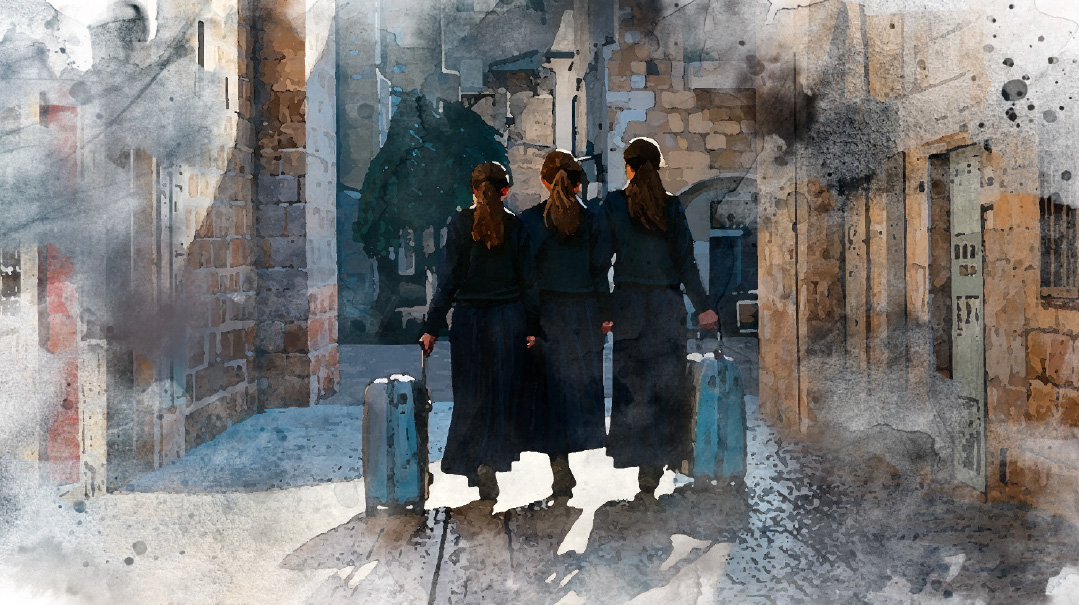Do Your Job

You can’t help but respect people who aim for a job well done

Last week one of our editors reached out to me. A member of a different department had made a request, and she wasn’t comfortable fulfilling it.
As a rule, our staff tries to be flexible and accommodating. If the advertising department wants to reserve specific pages (advertisers prefer that their ads appear on the right-hand pages of the magazine), the content people will do their best to provide them. If the production department needs to switch the print deadlines due to a secular holiday, the editors will scramble to meet them. If the editorial department wants to run a special project requiring extra pages and resources, our administration will try to tweak the budget. We’re all on the same team, after all.
But this time, the editor felt that the request would compromise the integrity of her work. “So tell her you can’t do it,” I said.
The editor sent a firm but polite email. The other staff member pushed back.
“What now?” the editor asked me.
“She has to do her job. And you have to do your job — politely refuse,” I said.
The editor doubled down, and then we waited. A few minutes later came the gracious response: “Okay, I tried. Thank you!”
T
his scenario repeats itself all the time, in varied iterations. A very talented writer recently sent in a piece about a sensitive topic. Our rabbinic advisor suggested multiple edits and deletions. The writer tried explaining the reasoning for his original draft, but the rav stood his ground. By the next morning, the writer had sent in a new piece to replace the sensitive one.
Last week, a graphic designer drafted some creative new designs for a Yom Tov project. The images were beautiful — but two or three were very different from the other pieces in the collection. The editor voiced her worries: Would the radically different style spell a lack of overall cohesiveness? She preferred a more uniform look. Our art director voted for the creative variety. The editor ultimately deferred to the art team.
Earlier this month, a writer submitted a piece written in a very lyrical and dramatic style. The editor assigned to the piece marked it up and explained where the verbiage seemed overdone. “This is my voice,” the writer said. “This is my story.” That was his right and maybe even his responsibility — to defend the authenticity of his writing.
But the editor had a job, too — not to obliterate the writer’s voice and not to bulldoze the material, but to make sure the final version adhered to a professional style, tone, and structure.
It was fascinating and even a bit moving for me to watch the exchange: the writer doing his job, the editor doing her job, each remaining diplomatic and respectful while confidently defending their work.
T
his all sounds very utopian, but real life is messy. Don’t think that our team’s every exchange is the perfect example of workplace communication skills, or that no one ever gets upset or irritated. This is a very high-pressure environment, and sometimes the conversations can get heated, the diplomacy evaporates as the hours tick by, or email chains get progressively tenser (pro tip: after two or three rounds of negative email communication, it’s usually best to pick up the phone).
But it’s nice to see that for the most part, there’s an underlying team spirit and respect. True, not all the departments will think alike, or have similar opinions, or prioritize the same way. The advertising department will battle to get prime space for their clients — that’s their job. The editorial department will beg for more content pages — they always want to give the readers more and better material, budget or no budget. The production department will set seemingly impossible deadlines and do their best to move the material forward — they have to get it all to the printers in time. And the management wants to see their financial goals met, and the company run responsibly.
It takes a lot of good will to align all those goals and to smooth over the inevitable friction that arises when priorities clash and conflict. But we try to remember that at the end of the day, everyone’s just doing their job. And you can’t help but respect people who aim for a job well done.
—Shoshana Friedman
Managing Editor
(Originally featured in Mishpacha, Issue 978)
Oops! We could not locate your form.






